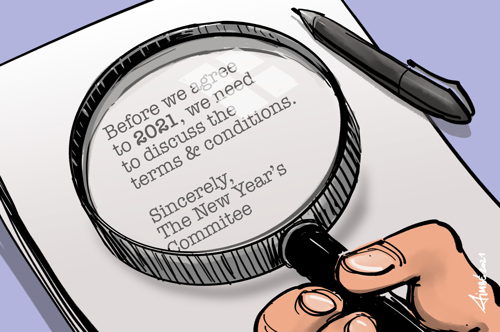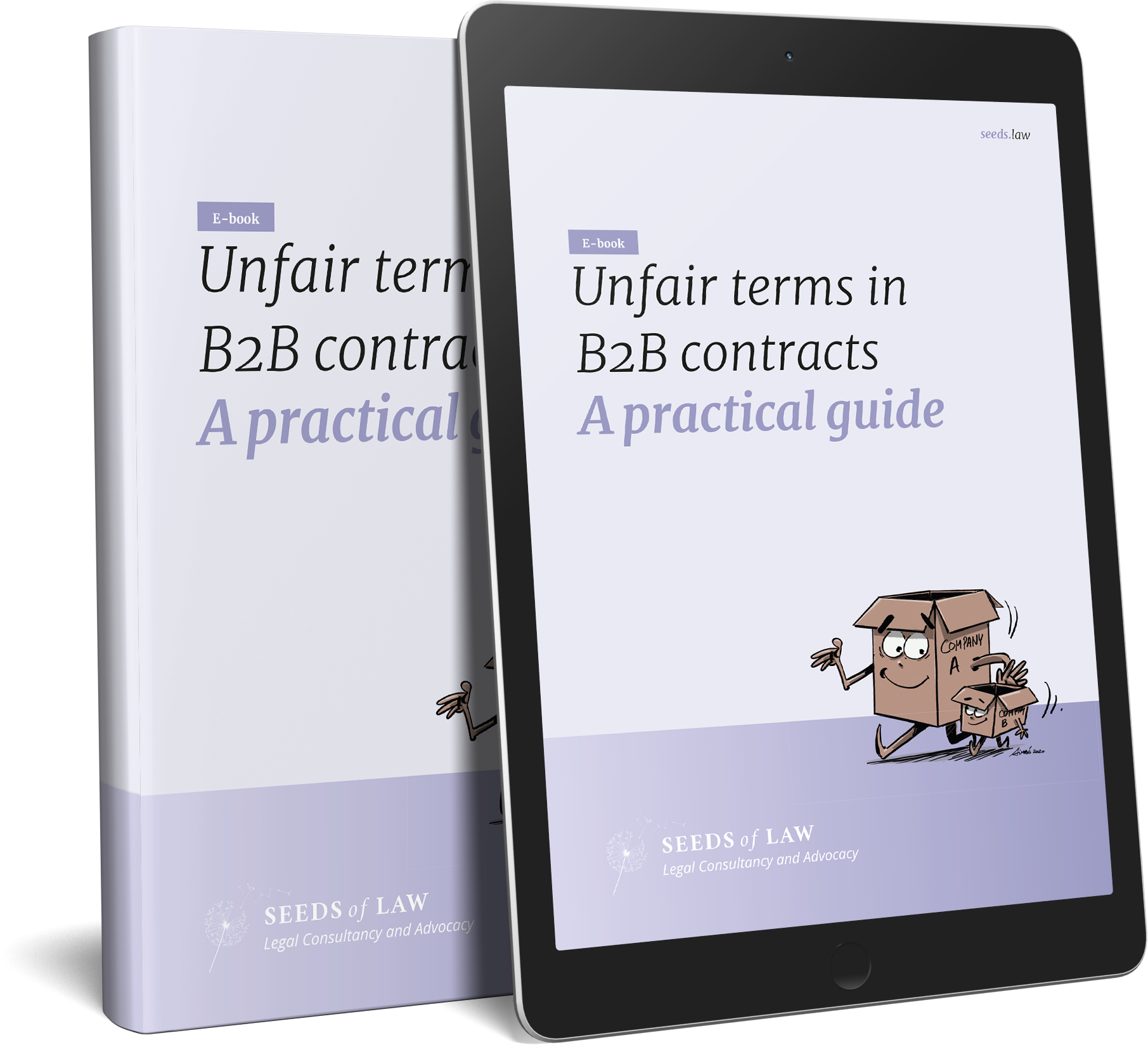- Commercial and Economic Law
- B2B , unfair B2B terms , B2B law , B2B contracts , general terms and conditions , black terms , grey terms
The B2B law inevitably has an important effect on the general terms and conditions of your agreements. In this section of our practical guide we explain why. You will find out how important it is to review your general terms and conditions (or have them reviewed) as soon as possible and, if necessary, adapt them to the B2B law.
1. General terms and conditions are very important in doing business
1.1 Why well-drafted general terms and conditions are important?
In B2B relations parties do not always put down their agreements in writing. In many cases an invoice is delivered, being the only document that reflects the agreement.
In most cases general terms and conditions are added, attached or printed on the backside of the invoice.
In that case, one can fall back on the general terms and conditions, at least, if these are foreseen on the invoice. In the absence of general terms and conditions (or of a written agreement), one has to rely on the rules of civil law, that are not always advantageous or appropriate.
General terms and conditions provide for a legal framework between the parties. Generally, they define the respective rights and obligations and anticipate any dispute. They may, for example, contain the necessary information about payment conditions, the invoicing period, delivery conditions, etc., all adapted to the personal or business situation of the parties.
Every businessman is able to draw up general terms and conditions (or have them drawn up) tailored to his business, while they will have to comply with the B2B law.
We continue to insist on the fact that it is essential to have properly drafted general terms and conditions that are comprehensive and specifically adapted to your contractual situation.
1.2 How should general terms and conditions of your contracts be drafted?
Both the contractual terms and conditions and the general terms and conditions in written agreements must be clear, concise, unambiguous and comprehensible. They must also be easily accessible and legible and may not be presented in too small fonts. This is called the transparency rule.
The law does not immediately provide for a specific sanction in the event of non-compliance with the transparency rule, but this does not prevent a court from annulling provisions on a related ground, and this can lead to legal uncertainty.
1.3 How can you be sure that your general terms and conditions have been accepted by your contract party?
It is extremely important that a contract party acknowledges and explicitly accepts the general terms and conditions prior to the conclusion of the contract.
In order to avoid all kind of (acceptance) problems, it is therefore recommended to include a clause in your contract stipulating that the other party has acknowledged the general terms and conditions and has understood and accepted them and that this clause is signed.
On the basis of B2B law, it will therefore not suffice to only forward or hand over the general terms and conditions to the other party along with the invoice.

2. Which "classic provisions" in the general terms and conditions can be problematic in the context of the B2B law?
It is extremely important that you ensure that your terms and conditions comply with the B2B law.
The B2B law mentions two lists of terms, prohibited in any event, known as "black" terms, on the one hand, and presumed to be unfair, known as "grey" terms, on the other.
But these lists are not exhaustive. In practice, each contract term may be found to be unfair if, on its own or in combination with one or more other terms, it creates a manifest imbalance between the rights and obligations of the parties.
Below you will find an overview of some terms which will not pass the test of legality on the basis of the B2B law.
These are in fact clauses:
- which release a party from any liability in the event of fraud or gross negligence;
- which significantly limit the means of proof of one of the parties in the event of a dispute of one kind or another;
- which require disproportionate damages and interest in the event of (proper) performance of the contract;
- imposing the economic risk without quid pro quo on one party where that risk normally rests on the other party or on another party to the agreement (e.g. exoneration clauses, imprescriptibility clauses, clauses fixing the price of goods and services by making them solely dependent on the future performance of the parties, INCO-terms);
- providing for an inappropriate contractual limitation or exclusion of the legal rights in case of breach of contract by the contracting party (e.g. exclusion of the right of rescission in case of contractual breach, limitation clauses which inappropriately limit the legal rights of a party);
- whereby the company confers on itself the right to unilaterally set or change the delivery time;
- (…)
As mentioned already, this list is not exhaustive.
3. What steps can you take to avoid potential problems?
For the agreements or transactions concluded after 1 December 2020, general terms and conditions have to comply with B2B legislation.
Previously concluded agreements will continue to be governed by the old rules, unless they are amended or extended.
By proactively reviewing and adapting your own contracts and their general terms and conditions, you can avoid any problems as strict clauses risk to be qualified, in practice, as unlawful.
We provide you with a few tips:
- You can stipulate in the general terms and conditions of your contracts that, in the event that they contain an unlawful clause, the parties must renegotiate it and replace it with a lawful one;
- It is recommended to specify that the clauses of the terms and conditions are divisible, so that if a particular provision is found to be unfair, the rest of the terms and conditions will remain valid.
- It is recommended to include in your contracts and general terms and conditions, whether or not exhaustive, an adequate list of the reasons that you consider to be a valid reasons for a unilateral amendment of the terms and conditions. That is why provisions granting a company the right to unilaterally amend the characteristics and/or conditions of a contract without a valid reason may be considered abusive.
This avoids problems of questioning the validity of a provision and in turn promotes legal certainty.
In practice, this can be useful, for example, to introduce a price adjustment when the price of raw materials has risen significantly, such that the economic equilibrium in the business relationship is disturbed. - It is important to take a closer look at the provisions on liability and penalty clauses, which must be worded carefully in order to avoid being the subject of a debate on possible unfairness.
We will of course be happy to assist you in reviewing your contracts and general terms and conditions and, if necessary, adapting them to the B2B regulations. Do not hesitate to contact the specialists of Seeds of Law, via info@seeds.law or +32 (0)2 747 40 07.
False Read alsoDiscover our e-book about unfair terms in B2B contracts
In our e-book “Unfair terms in B2B contracts” you will discover a number of interesting tips to familiarize yourself with the new principles of the B2B law.






